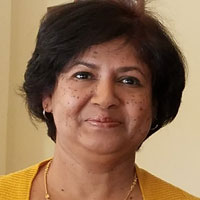 We are excited to present a new section for our newsletter. Grand cru is French for “superior grade wine”. Accordingly, this new feature highlights some of the best articles from recent medical education literature.
We are excited to present a new section for our newsletter. Grand cru is French for “superior grade wine”. Accordingly, this new feature highlights some of the best articles from recent medical education literature.
For our first offering, we have chosen to focus on the concept of Reflective Practice in Medical Education, considered an essential element of teaching and learning in medicine. Reflective practice is believed to facilitate development of critical thinking abilities, enhance professional growth, and promote life-long learning.
Reflection as a Learning Tool in Graduate Medical Education: A Systematic Review by Winkel et al.
In this article, Winkel et al conducted a systematic review examining the utilization of reflection in graduate medical education. Outcomes from these studies demonstrated several key points, including its beneficial impact on empathy, increase in learning of complex subjects, and a deepening of overall professional values.
I found two older articles that explain the concept of reflective practice in greater depth:
Reflection: moving from a mandatory ritual to meaningful professional development by Murdoch-Eaton and Sandars (PubMed link)
Murdoch-Eaton and Sandars elaborate on the theoretical background of reflection as an educational tool. In addition, they provide convincing arguments for its use not just as a ritual, but rather, as a means for professional development. They postulate that the principal role of reflection is to enhance perception, which leads to acquisition of wisdom; these are are key elements of life-long learning.
The structure of reflective practice in medicine by Mamede and Schmidt (PubMed link)
Mamede and Schmidt examine the structural concept of reflective practice by expounding on the work by John Dewey that conceptualized reflective thought as a five-stage process – deliberate induction, deliberate deduction, testing, openness to reflection, and meta-reasoning. In their opinion, understanding this concept will help in the design of better instructional material that can promote the educational intervention of reflective practice for students and doctors.
Bibliography
- Winkel AF, Yingling S, Jones AA, Nicholson J. Reflection as a Learning Tool in Graduate Medical Education: A Systematic Review. J Grad Med Educ. 2017 Aug;9(4):430-439.
- Murdoch-Eaton D, Sandars J. Reflection: moving from a mandatory ritual to meaningful professional development. Arch Dis Child. 2014 Mar;99(3):279-83.
- Mamede S, Schmidt. The structure of reflective practice in medicine. Med Educ. 2004 Dec;38(12):1302-8.


